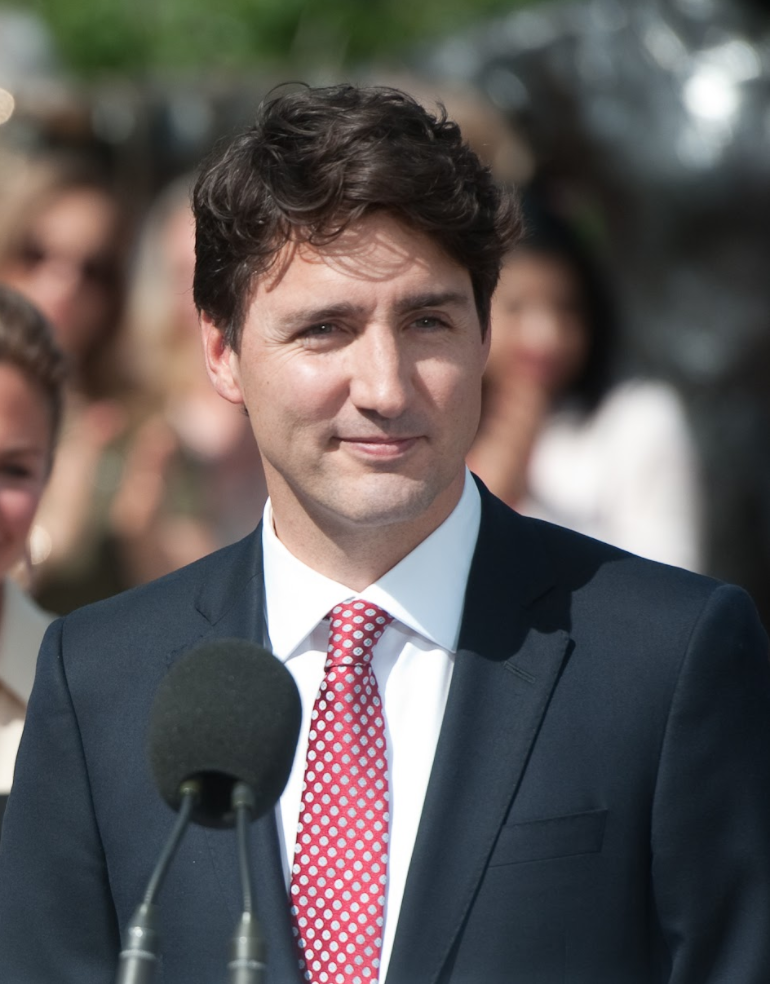Tale as Old As Time: Has Prime Minister Trudeau learned from pandemic elections of the past?
Noor Yassein, Print Editor-in-Chief
September 20, 2021
On August 15th, 2021, Justin Trudeau called for a snap election in Canada. Parliament shut down, current MPs became candidates, and the playing field was levelled. Everyone had an equal shot – although some believed their shot was more certain than others. Justin Trudeau was one such person, aiming to regain his majority government and ‘give Canadians their say’. However, his confident attitude has not been corroborated historically – many pandemic elections have ended in loss for the incumbent candidates, due to the public uproar at both the situation itself and the actions their government took, or didn’t take. The upcoming Canadian election, through public blame and changes to campaigning strategies, has many similarities to those historical elections, so likely will end up the same – or at the very least, not with a victory like the one for which Trudeau is hoping.
First off, similar to past elections, Prime Minister Trudeau has been blamed for the current situation, given that he is the one in charge. This is not a new phenomenon – in fact, in a situation as early as 430 B.C. in Athens, this occurred during a pandemic. The leader at the time was Pericles, and Athens was engaged in a war with Sparta. Because of this war, Pericles decided to fortify the area so as to better protect his subjects. However, once the plague was introduced, the cramped conditions only led to a quicker spread of the disease. And so by the time an election occurred, his reputation was beyond saving, and he was kicked out and fined for his errors.
In the United States in 1918, the pandemic was caused by the spread of influenza. That same year, there was an election, and the public blamed those currently in power: namely, the Democrat Party. It is thought that this is one of the major reasons they lost both the House and Senate that year. With these two examples, we can see clear influence between the spread of a fatal disease and election decisions. A CBC article on this topic brought up that public health decisions bring about much more passion among voters as these are decisions that directly impact the general public. Thus, unless the public fully trusts their government – which does not seem to be the case very often – it is likely that the current administration will be blamed for the country’s situation. Many leaders today are recognizing this, and are attempting to delay election proceedings and what seems to be the inevitable. In places like Ethiopia and Bolivia, for example, election delays have been mainly viewed as a way for the sitting presidents to extend their term. This suggests a presumption that they will lose their seat once the election occurs.
Prime Minister Trudeau does not seem to share in this belief, hosting his election two years earlier than planned. But what is the likelihood that it will actually work in his favour? Not very high, in my opinion. Currently, Justin Trudeau is sitting with a minority government. This means he will need more people to vote for him than last time in order to secure a majority. However, not only did the current pandemic interfere with his ability to keep the promises made in the 2019 campaign (of which there were many), it must also be pointed out that COVID-19 was not an issue during the last election, and the pandemic is not yet over. Canada is currently facing a fourth wave of COVID-19, so not only are people upset that an election is happening when we are not through the worst, but guidelines are still in place that make campaigning a difficult task.
Going back to the 1918 U.S. election, the normal campaign tactics that were used – rallies and public appearances, for example – could no longer occur. This meant that candidates were forced to rely on newspaper interviews and mailed informational packages, which are objectively much less inspiring than rousing speeches to rally large groups of voters. We are facing a similar situation now – large gatherings are not only unsafe, but also in bad taste, considering Trudeau himself called the election just as a fourth wave was on the horizon. He has had to rely on different methods in order to campaign. Granted, it is easier than it was in 1918 given the prominence of the Internet and social media, but the impact of such changes in campaigning style could be significant. Not to mention, when it comes to Election Day itself, there will be those unable to participate due to health reasons, reluctance to venture into a public setting, or just a lack of information. Even those that might have voted for a Liberal majority in, say, two years, may be held back due to a lack of passion or resentment of the election timing -- or both.
While these are certainly unprecedented times, this is not the first pandemic to happen in our history. This situation has happened before, and to dismiss the negative impact on the sitting party is not a winning strategy. Justin Trudeau will need to rely on more than just his pandemic response to win back his 2015 majority, as pandemic elections bring forth more tribulations and emotion than a normal election year. Decisions he has made in the past year and a half have impacted arguably every voter in this country, and we are not yet out of the woods. Regardless, this election is happening whether we like it or not, and it is important to have your say. If these past two years have taught us anything about politics, it’s that the government has a considerable amount of power and crises can happen at any time. It is up to us – when the storm hits: who do we want at the helm?
